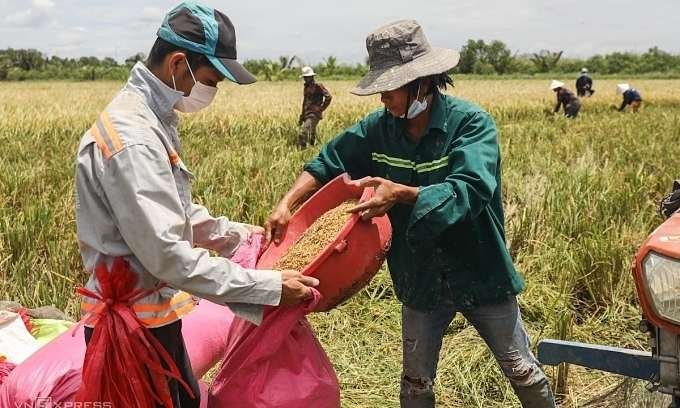The Philippine Department of Agriculture (DA) has expressed confidence in the country’s ability to maintain a stable rice supply despite looming concerns about the effects of the El Niño phenomenon. With the dry spell expected to disrupt weather patterns and affect agricultural productivity across Southeast Asia, the department is taking steps to ensure that rice production remains sufficient to meet national demand.
In a recent statement, Agriculture Secretary confirmed that the government has contingency plans in place to mitigate the impact of El Niño on rice production. According to the Secretary, these efforts include the expansion of irrigation projects, investments in drought-resistant rice varieties, and partnerships with neighboring countries to boost rice imports if necessary.
Addressing the El Niño Challenge
El Niño is expected to bring reduced rainfall and prolonged dry periods to key agricultural regions in the Philippines, posing a serious threat to the country’s rice farms. Despite this, the DA remains bullish about its prospects for maintaining an adequate rice supply throughout the year.
“We are confident that we have prepared for this scenario. Our farmers have been trained to adapt to changing weather conditions, and we have been proactive in introducing technologies and measures to reduce the impact of El Niño,” said Secretary.
Key to the government’s strategy is the expansion of irrigation systems in rice-producing areas. With the expectation of reduced rainfall, irrigation is critical to ensuring that rice farms can continue to produce at their current levels. In recent years, the government has made significant investments in modernizing irrigation infrastructure to make it more resilient in the face of climate challenges.
A Multi-Pronged Approach
The DA’s strategy for addressing the potential impact of El Niño is not limited to irrigation. The department has also been promoting the use of drought-resistant rice varieties among farmers. These rice strains have been developed to withstand periods of low water availability, ensuring that productivity does not plummet during the dry season.
“The introduction of drought-resistant rice is a key part of our long-term strategy to ensure food security, even in the face of climate change,” added Secretary.
Additionally, the government has bolstered its ties with rice-exporting nations like Vietnam and Thailand, securing agreements that would allow the Philippines to increase its rice imports if domestic production falls short. This is seen as a critical insurance policy, ensuring that any domestic shortfall can be quickly addressed through imports, thereby preventing price spikes and food shortages.
Maintaining Food Security Amid Global Volatility
While the DA remains optimistic about the country’s rice supply, the challenges posed by El Niño are not to be underestimated. Experts warn that global supply chains are under increasing pressure from climate change, making food security a more pressing issue than ever before.
“El Niño is just one of the many threats we are facing. Climate change has made weather patterns more unpredictable, and this poses a significant risk to agricultural production worldwide,” said a leading agricultural economist. “Governments need to be proactive and take decisive action to safeguard their food supplies.”
In light of these global challenges, the Philippine government’s efforts to diversify its rice sources and enhance domestic production have been praised by international observers. The country’s ability to secure rice imports from key partners in Southeast Asia, combined with its investment in agricultural infrastructure, is seen as a positive step toward ensuring food security.
The Role of Technology and Innovation
The DA’s confidence in weathering the El Niño crisis is also rooted in the role that technology and innovation play in modernizing the country’s agricultural sector. Recent years have seen a surge in efforts to introduce precision farming techniques, which allow farmers to optimize water use and monitor crop health more efficiently.
By adopting these technologies, farmers are better equipped to handle periods of drought and other weather-related challenges. The DA has also been working with research institutions to develop new rice varieties that are more resilient to extreme weather conditions.
“We cannot stop climate change, but we can adapt to it,” said Secretary. “Through technology, innovation, and cooperation with our farmers, we can continue to produce the food that our country needs.”
Contingency Plans and Looking Ahead
Despite the upbeat outlook, the DA is also preparing for worst-case scenarios. Should domestic rice production face significant disruption, the government has established contingency plans to ramp up rice imports from neighboring countries. The government has already secured agreements with Vietnam and Thailand to supply rice in case of shortages, ensuring that domestic demand can be met without major price fluctuations.
“These import agreements are crucial to our overall strategy. We do not want to wait until we are in a crisis to start looking for solutions,” said an official from the DA. “We are being proactive in securing the food supply chain.”
Looking further ahead, the DA has emphasized the need for continued investment in agricultural infrastructure, technology, and research to build a more resilient food system. The ongoing threat of climate change and increasingly volatile weather patterns mean that El Niño is unlikely to be the last challenge the country faces in maintaining its food security.
“The future of agriculture lies in our ability to adapt to the changing climate. We need to make long-term investments to ensure that our food systems are resilient,” added the Secretary.
Conclusion: Staying Ahead of the Crisis
As the threat of El Niño looms over the Philippines, the Department of Agriculture’s confidence in its rice supply is a reassuring message for consumers and farmers alike. With strategic investments in irrigation, drought-resistant crops, and international partnerships, the government is taking a proactive approach to safeguarding the country’s food security.
While the challenges are significant, the DA’s multi-pronged strategy demonstrates that the Philippines is not only preparing for the short-term effects of El Niño but also laying the groundwork for a more resilient agricultural sector in the years to come.
